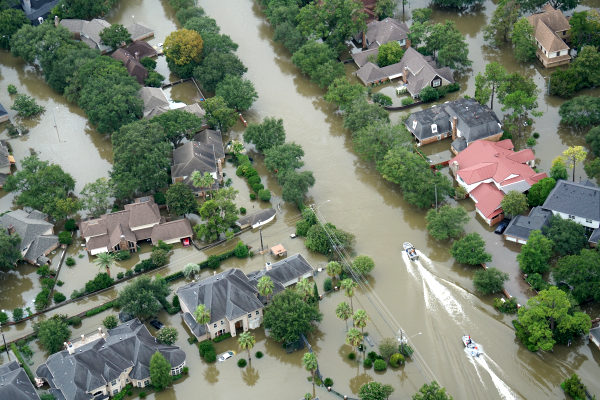
The Painful Toll of a Natural Disaster
When Hurricane Harvey hit Texas in late August, no words could describe the damage – or the heartbreak – that went along with it.
The nation watched in disbelief as images came pouring in of families huddled in makeshift shelters, floodwaters rampaging through suburban streets, and of course, homes ruined by unprecedented wind, rain and flooding.
It’s been estimated that 185,149 homes were damaged or destroyed. And with 80 percent of the hurricane victims not having flood insurance, many now face the prospect of paying for repairs or rebuilding from their own pockets—money many residents are hard-pressed to come by.
The takeaway for California insurance agents: the reasons used by many of the uninsured in Texas for not having flood insurance are very similar to the reasons why a majority of Californians don’t purchase earthquake insurance.
Is Earthquake Country Prepared to Face Its Own Disaster?
It’s easy to look east from California and wonder aloud why so many people were without insurance. Yet when it comes to earthquakes, are Californians any better prepared?
According to the California Department of Insurance, only about 10% of Californians have a residential earthquake policy. And like residents of flood-prone states, many Californians have their reasons for being uninsured:
- Reason #1: “If my home is damaged in an earthquake, the government will bail me out.” Unfortunately, most natural disasters are not declared federal disasters so they’re not eligible for government assistance. And when they are, those in need find there is far less help than they expected. The average FEMA payout after the 2014 South Napa earthquake was just $2,670. Some government assistance is available in grants, but the goal of the grant is not to return a home to its pre-disaster condition. And while rebuilding loans are sometimes offered, they must be paid back, just like a mortgage.
- Reason #2: “My homeowners insurance policy covers earthquake damage.” Homeowners insurance doesn't cover losses caused by flood or earthquake damage. Not only will it not cover direct physical damage caused by an earthquake, it also won’t pay for any indirect losses—sometimes referred to as consequential losses—caused by an earthquake (for example, the cost to live elsewhere while rebuilding or repairing a damaged home). To get earthquake coverage, they’ll need to purchase a separate earthquake insurance policy.
- Reason #3: “My home survived the last earthquake, so it will survive the next one.” Every earthquake—like every hurricane—is different. A home that was spared in one earthquake can be badly damaged or completely destroyed by the next.
- Reason #4: “It won’t happen to me.” Like hurricanes, earthquakes don’t care about race, color, creed or wallet size. They are equal opportunity disasters, striking wherever – and whomever – is in their path.
- Reason #5: “I can’t afford earthquake insurance.” Since 1996, construction costs have increased over 140%, yet CEA has lowered its rates over time by a combined 55%. In addition, starting in 2016, CEA began offering expanded coverage choices and more deductible options. With these more flexible policies, it’s easier for your client to find a CEA policy that fits their needs and budget.
Your policyholders may have these misconceptions, or other objections and questions about CEA earthquake insurance. Be sure to have all the right answers by attending free CEA agent training.
Together, let’s learn from Hurricane Harvey and help protect policyholders’ hearts and homes from the next damaging earthquake.
